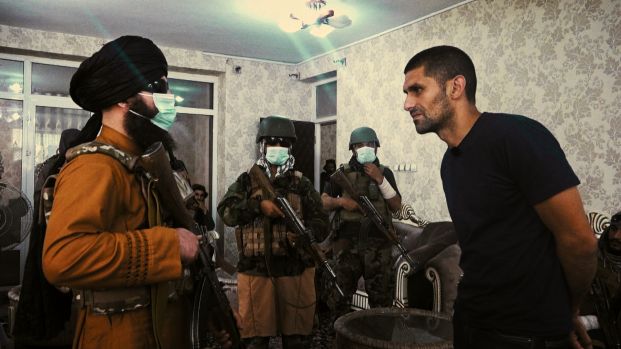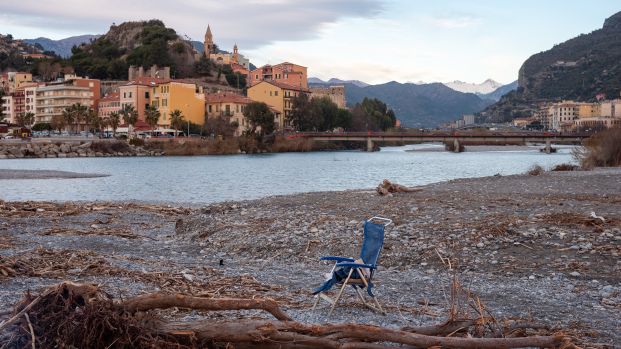
Which crises and conflicts do we talk about, which wars do we see in the news every day - and which do we not? War crimes in the Democratic Republic of Congo, local forces killed in Afghanistan, or the Mediterranean as one of the deadliest refugee routes in the world: millions of people are persecuted, live in poverty and hunger because of these wars and conflicts - but they are perceived far too little by the public.
With the film series Focus: Forgotten Conflicts, the Human Rights Film Festival Berlin wants to put these crises at the centre of international diplomatic efforts, draw attention to the daily suffering of millions of people and tell their stories.

Commentary
Afghanistan: Forgotten by the West’s Self-Assured Disinterest
When Kabul fell to the Taliban in the summer of 2021, many Afghans’ hopes for help were bitterly disappointed. Research shows how little government agencies did for local Afghan workers. Journalist Mohamed Amjahid reported on this state of affairs. A commentary.
I drew three bitter realisations from a year of research into the situation of Afghan refugees worldwide after the withdrawal of the so-called West from Afghanistan:
1. The governments in the Global North with their neo-colonial attitudes pay precious little attention to the implications of their policies in the so-called Global South. This is easy to see in Afghanistan. Not only was Western intervention there carried out with hypocritical arguments from the outset, it was abruptly broken off with a self-assured disinterest in the people of the country – although it was clear that there was a risk the Taliban would take power after the withdrawal.
2. When extremist violence hits marginalised minorities or societies on the periphery defined by colonialism, most of the powerful at the supposed centre (i.e., in Europe and the US) pay precious little attention to it. For example, Islamism is only a problem when it threatens ‘us’ in ‘our way of life’. If this violence hits Afghan feminists, queers or democrats, the ‘centre’ is more than happy to accept it.
3. European values make a distinction between ‘good refugees’ and ‘bad refugees’, and this means that what shouldn’t happen happens: those seeking protection are played off against each other. All human dignity is inviolable. At least that’s what it says on paper, which so many policymakers don’t take seriously.
Allow me to put it a little more emotionally: the way that German and European political decision-makers in particular are dealing with the issue of displacement is a disgrace. The European policy of isolation is unbearable for me as an observer; for people fleeing it ends in death. This has to stop.
Refugees, whether they are fleeing from African regimes, from the Middle East or from Afghanistan, are viewed as objects. In the Eurocentric logic, these objects can either be left to the Taliban, left to drown in the Mediterranean Sea or quickly shoved back into the hands of autocratic regimes that are maintained within the framework of international relations with Europe. We to rethink this, we need to protest and show solidarity with those affected by this interdependence of self-centred foreign policy, exploitative international relations and the result of a normalised shift to the right in Europe.
Amjahid's research into the situation of refugees from Afghanistan is available on WDR5 as a four-part podcast series and in SZmagazin as a long read.







